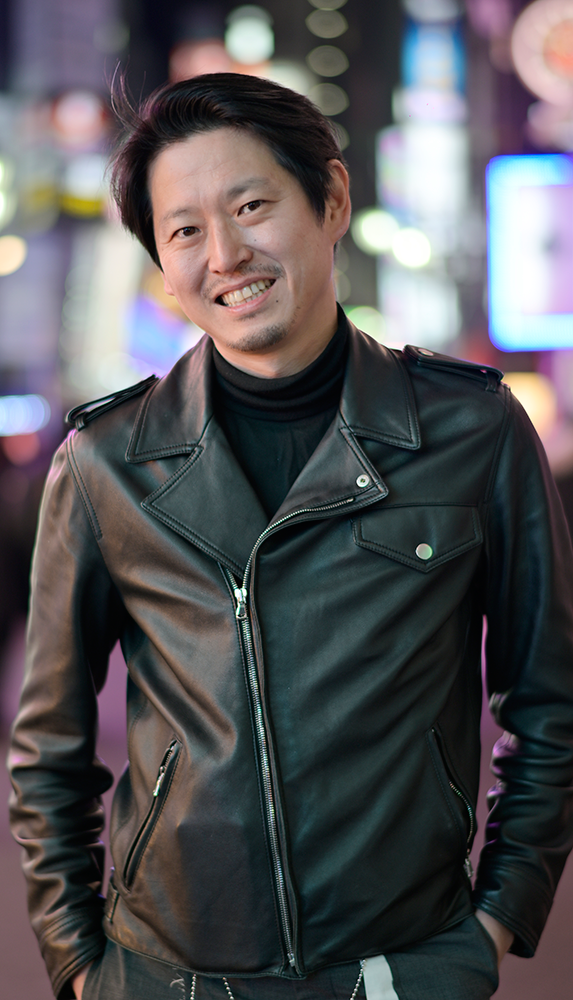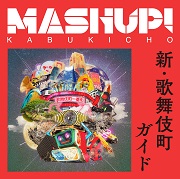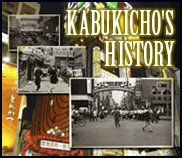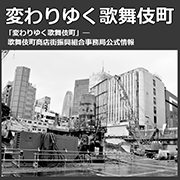

Maki Tezuda. He is an entrepreneur that currently operates six host clubs and a number of bars in Kabukicho. He was originally a charismatic host himself, and he began his career, and became famous, in Kabukicho. He has started his host clubs (a sex-related industry) here as well, which has put him in a position to be discriminated against, though his ability to spread information and his sensibilities are recognized by the people of Kabukicho. He is currently the executive director of the Kabukicho Shopping District Promotion Association. The economic benefit of night tourism has become more sought after as of late, and nine of ten people will tell you the night mayor of Kabukicho is Maki during such discussions.
Maki Tezuka, night mayor of Kabukicho. We had to speak with him.
"It's not much of a place for entertainment, and the places that are starting to offer entertainment are on the surface level, and are quite different from Kabukicho's traditional charms."
In 2015, where the Koma Theater once was, the Shinjuku Toho Building with its famous Godzilla head now stands, and one of its primary tenants is a large scale hotel. After it opened, Kabukicho began its change into a tourist destination. More accurately, it has become a base for tourist activity, as it is an area centered around convenience.
"If you still want to experience the town (in a short period), you need to go to a bar, and drink there until morning. It's the only way to get to know Kabuk icho. It will give you a small peek inside."
This means that, on the other hand, any place can serve as an entry point. If you pick up an idea online, post it on your SNS, calculate out your costs, and enjoy yourself within those limits instead of just going out and having fun, you will only find what you have allowed yourself to. That's how tourism in Japan is right now. "Coming to a place outside of the bubble (of your limited everyday life), you can see yourself for who you are from an outside perspective. You don't intentionally try to see who you are; doing pointless things, and spending money pointlessly gives you pause to reconsider your actions, and this can give you a chance to see who you are and what you want from an objective standpoint. If you think about it, you don't even really understand yourself. The time you spend here will give you a chance to think objectively thas meaning because it doesn't just end with a drink. You don't have to try to make something happen yourself. Time spent going a little crazy gives you a chance to think about who you actually are. To get an understanding of Kabukicho, knowing the fact that it's outside of your bubble is very important," he says. He spoke very passionately, perhaps because he had been drinking a little.
"The feeling of liveliness you get here is the same you feel in New York, and places like New York or Ebisu have Kabukicho-esque elements to them. Drinking establishments are like that. This town has so many gathered together, and is so tightly condensed, that it is the best place is the world by far to find a place that suits you," he said. His words re_ect what is great about the area. With everything condensed so much, the town itself becomes a form of life, always purifying itself and evolving.
“The people who work here are closer to the core. They can’t a_ord to be ‘dumb’.”
"People should live as however they want. Freely. Trying to live while you deprive yourself of something is hard, and you shouldn't live a life that makes you feel like that. You need to be fairly numb in order to live the same way every day. Humans are creatures that should live without holding back on their desires or settling, and not thinking anything about it. Temperance, reason, and rules exist because we have to live in a society. That's why saying coming to terms with what kind of person you are is laughable, is laughable. The people who work in Kabukicho live within their human desires. They use it in the cycle of their daily lives. But there are some people who actually become like ants amid it all. Then it's all the same. But it's 100 times better than becoming an ant due to societal forces, conventions, or sets of preferences. At least they've noticed it, and struggle, and could possibly get out.
But then the media reports on those parts of the town as something funny, and things go of the rails. People make excuses like family, having kids, or say it’s not normal, but no one has the right answer. The people of Kabukicho are much more correct as humans."
I think it's allowed to be as it is because there is a bubble around Kabukicho itself. It's true that new possibilities and interesting things can be found behind the scenes, but I don't think everyone is looking for as much freedom or chaos as he says...
Interviewer/Koichi Teratani

Maki Tezuka
Profile/Born on September 20, 1977 in Saitama.He began working as a host in Kabukicho in 1997, an instantly charismatic presence. He established Yachonokai, a volunteer organization of famous Kabukicho hosts.He created the Kabukicho Book Center in 2017, the only book store in Kabukicho, which unfortunately failed, and is scheduled to reopen in 2020. He currently owns six host clubs, and eight other bars and snacks, and is also the chairman of the Smappa! group, which runs beauty salons and more.He became the executive director of the Kabukicho Shopping District Promotion Association (his present position) at the recommendation of chairman. His publications include UraDokusho (Discover 21, 2019), and Not Giving up On Myself - Important Things I Learned in Kabukicho (Discover 21, 2009). He is currently publishing an irregular series about economics in Kabukicho in Forbes JAPAN as of October 2019.




























